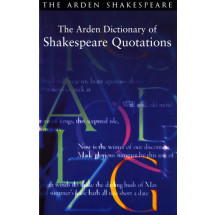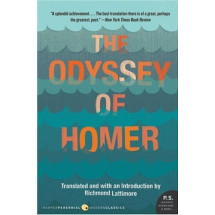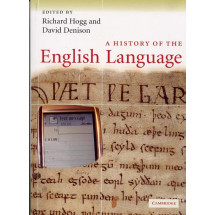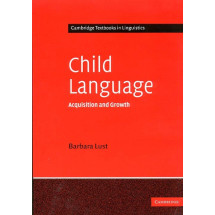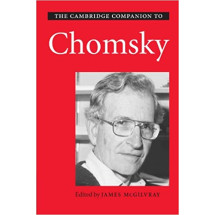I. Ways of Conceptualizing Early Literacy Development
1. Introduction, Neuman and Dickinson
2. Emergent Literacy: Development from Prereaders to Readers, Whitehurst and Lonigan
3. A Sociocultural Perspective on Early Literacy Development, Gee
4. Literacy and Oral Language: Implications for Early Literacy Acquisition, Watson
5. Some Theoretical and Methodological Considerations in Studying Literacy in Social Context, Pellegrini
6. Alphabetic Anxiety and Explicit, Systematic Phonics Instruction: A Cognitive Science Perspective, Adams
7. Brains, Genes, and Environment in Reading Development, Olson and Gayan
II. Strands of Early Literacy Development
8. Connecting Early Language and Literacy to Later Reading (Dis)abilities: Evidence, Theory, and Practice, Scarborough
9. Early Phonological Development and the Acquisition of Literacy, Goswami
10. Writing and Children's Symbolic Repertoires: Development Unhinged, Dyson
11. Invented Spelling, Phonemic Awareness, and Reading and Writing Instruction, Richgels
III. Home and Community Influences
12. Young Bilingual Children and Early Literacy Development, Tabors and Snow
13. Joint Caregiver-Child Storybook Reading: A Route to Literacy Development, Bus
14. Early Language and Literacy Skills in Low-Income African American and Hispanic Children, Vernon-Feagans, Hammer, Miccio, and Manlove
15. Making Schools Work for Low-Income Families in the 21st Century, Goldenburg
16. The Complex Interplay between Biology and Environment: Otitis Media and Mediating Effects on Early Literacy Development, Roberts and Burchinal
IV. Schooling Influences: The Preschool Years
17. Early Literacy and Developmentally Appropriate Practice: Rethinking the Paradigm, New
18. The Nature and Impact of Early Childhood Care Environments on the Language and Early Literacy Development of Children from Low-Income Families, Dickinson and Sprague
19. Environment and Its Influences for Early Literacy Teaching and Learning, Roskos and Neuman
V. Instructional Materials and Classroom Practices
20. Emergent Literacy Skills, Early Instruction, and Individual Differences as Determinants of Difficulties in Learning to Read: The Case for Early Intervention, Vellutino and Scanlon
21. Early Intervention for African American Children Considered to Be at Risk, Strickland
22. Teaching Phonics and Phonological Awareness, Stahl
23. Literature-Based Instruction in the Early Years, Morrow and Gambrell
24. The Texts of Beginning Reading Instruction, Hiebert and Martin
25. Early Literacy Development: The Case for "Informed Assessment," Johnston and Rogers
26. Assessing the Literacy of Young Children: A Case for Multiple Forms of Evidence, Salinger
VI. Special Intervention Efforts
27. Preschool Education for Economically Disadvantaged Children: Effects on Reading Achievement and Related Outcomes, Barnett
28. Intergenerational Family Literacy: Concepts, Research, and Practice, Wasik, Dobbins, and Herrmann
29. The Complex World of One-on-One Tutoring, Invernizzi
30. Title 1 and Special Education: Support for Children Who Struggle to Learn to Read, McGill-Franzen and Goatley
Susan B. Neuman, EdD, a professor in educational studies specializing in early literacy development, returned to the University of Michigan in 2004 after a 2-year hiatus, during which she served as the U.S. Assistant Secretary for Elementary and Secondary Education. Her research and teaching interests include early childhood policy, curriculum, and early reading instruction. In her role as Assistant Secretary, she established the Reading First program and the Early Reading First program, and was responsible for all activities in Title I of the Elementary and Secondary Education Act. Dr. Neuman recently received an honorary doctorate from the California State University/n-/Hayward, where she also conducted her master's work in reading and curriculum. Widely published, she received her doctorate from the University of the Pacific in Stockton, California.
David K. Dickinson, EdD, is a professor at the Peabody School of Education, Vanderbilt University. He received his doctoral training at Harvard University's Graduate School of Education after teaching elementary school in the Philadelphia area for 5 years. Since the early 1980s he has studied language and early literacy development among low-income populations, with a focus on the role of oral language in literacy development. Dr. Dickinson has examined the interrelationships among language, print skills, and phonemic awareness and has conducted detailed studies of language use patterns in early childhood classrooms. He helped create tools for describing literacy support in preschool classrooms, and developed and studied approaches to providing professional development for preschool teachers. Widely published, Dr. Dickinson has served on numerous advisory boards and recently was on a commission assisting the National Association for the Education of Young Children with revising its accreditation standards.



